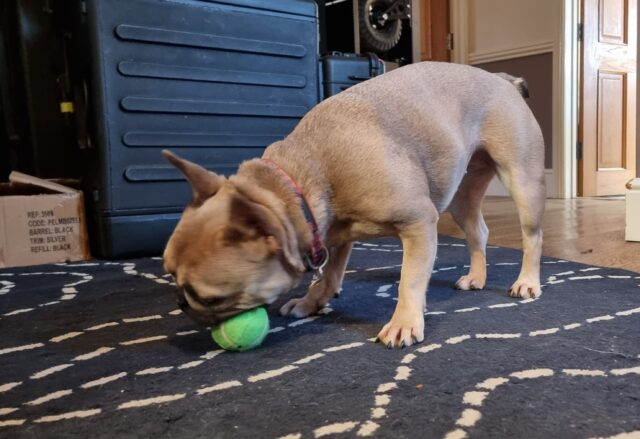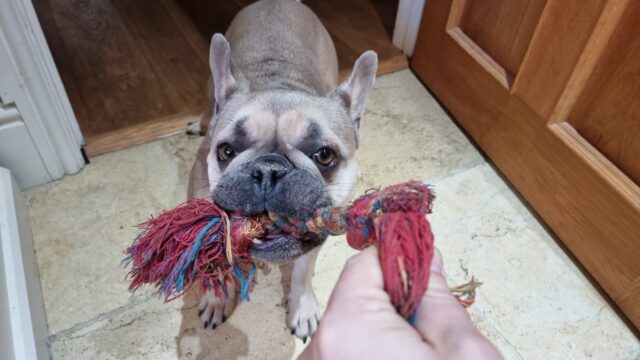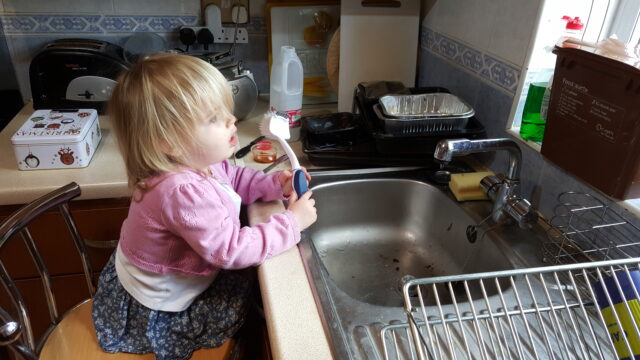Our beloved-but-slightly-thick dog will sometimes consent to playing fetch, but one of her favourite games to play is My Ball. Which is a bit like fetch, except that she won’t let go of the ball.
It’s not quite the same as tug-of-war, though. She doesn’t want you to pull the toy in a back-and-forth before, most-likely, giving up and letting her win1. Nor is My Ball a solo game: she’s not interested in sitting and simply chewing the ball, like some dogs do.

No, this is absolutely a participatory game. She’ll sit and whine for your attention to get you to come to another room. Or she’ll bring the toy in question (it doesn’t have to be a ball) and place it gently on your foot to get your attention.
Your role in this game is to want the ball. So long as you’re showing that you want the ball – occasionally reaching down to take it only for her to snatch it away at the last second, verbally asking if you can have it, or just looking enviously in its general direction – you’re playing your part in the game. Your presence and participation is essential, even as your role is entirely ceremonial.

Playing it, I find myself reminded of playing with the kids when they were toddlers. The eldest in particular enjoyed spending countless hours playing make-believe games in which the roles were tightly-scripted2. She’d tell me that, say, I was a talking badger or a grumpy dragon or an injured patient but immediately shoot down any effort to role-play my assigned character, telling me that I was “doing it wrong” if I didn’t act in exactly the unspoken way that she imagined my character ought to behave.
But the important thing to her was that I embodied the motivation that she assigned me. That I wanted the rabbits to stop digging too near to my burrow3 or the princess to stay in her cage4 or to lie down in my hospital bed and await the doctor’s eventual arrival5. Sometimes I didn’t need to do much, so long as I showed how I felt in the role I’d been assigned.

Somebody with much more acting experience and/or a deeper academic comprehension of the performing arts is going to appear in the comments and tell me why this is, probably.
But I guess what I mean to say is that playing with my dog sometimes reminds me of playing with a toddler. Which, just sometimes, I miss.
Footnotes
1 Alternatively, tug-of-war can see the human “win” and then throw the toy, leading to a game of fetch after all.
2 These games were, admittedly, much more-fun than the time she had me re-enact my father’s death with her.
3 “Grr, those pesky rabbits are stopping me sleeping.”
4 “I’ll just contentedly sit on my pile of treasure, I guess?”
5 Playing at being an injured patient was perhaps one of my favourite roles, especially after a night in which the little tyke had woken me a dozen times and yet still had some kind of tiny-human morning-zoomies. On at least one such occasion I’m pretty sure I actually fell asleep while the “doctor” finished her rounds of all the soft toys whose triage apparently put them ahead of me in the pecking order. Similarly, I always loved it when the kids’ games included a “naptime” component.